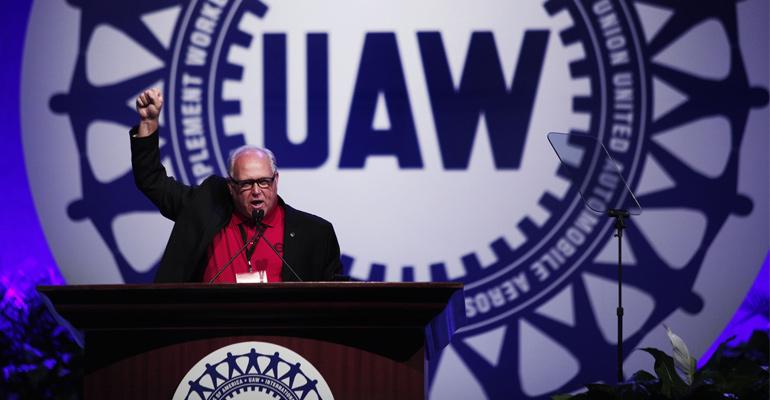President Trump set off alarm bells across the industry when he threatened to raise import tariffs on all imported cars, possibly as high as 25%. If he follows through, the impact will be immediate.
Half of all vehicles sold in the U.S., more than 8 million, are made outside of the country. Sales will plummet almost instantly.
Some speculate that automakers could eat the cost of the tariff until they worked out other plans. But that’s not likely to happen. Let’s do the math. According to data from the U.S. Commerce Dept., the average port-of-entry price for an imported vehicle was just over $23,000 last year.
A 25% tariff will add $4,600 to the price tag of those vehicles. The price of the average luxury car will go up about $8,000. Automakers can’t eat that kind of cost; they’ll be forced to pass it on to customers.
Car dealers that sell imported vehicles would see their businesses decimated. Dealers that sell domestic brands also would face a severe shortage, because they get so many cars and trucks made in Mexico and Canada that would be priced out of the market.
Trump’s idea is to force foreign automakers to build more assembly plants in the U.S., but it would take years to build them. The NAFTA supply chain would be torn to shreds, driving up costs of domestically made vehicles.
In the meantime there would be a crippling shortage of new cars, and you know what that means. The old supply and demand thing. Prices would skyrocket.
Many consumers likely would consider buying a pickup truck, since the price differential between passenger cars and pickups would narrow. But make no mistake, automakers would drop all their sales incentives as demand went up.
The same goes for used cars. Prices would shoot up, as people who rely on cars to get to work, school and everywhere else still would require a set of reliable wheels, even if they couldn’t buy a new one.
Not everyone would be unhappy. Tesla, I imagine, would be thrilled. It faces an onslaught of upscale electric cars coming from European automakers, every one of them imported. A 25% import tax would give Tesla a lot of breathing room. The price of the new $70,000 electric Jaguar i-Pace, a key Tesla competitor, would go up roughly $17,000.
The UAW also likes the idea. Dennis Williams, the outgoing president of the union, praised Trump for coming out with a plan that would force foreign automakers to build more plants in the U.S. Talk about living in strange times. That’s the first time we’ve ever heard the UAW say anything positive about a Republican president.
Trump also may be thinking about making a pre-emptive move, anticipating a wave of imported cars from China. He also may be doing this in retaliation for China’s import tariffs, which are 25% on U.S.-built vehicles.
China also forced foreign automakers to form partnerships with domestic manufacturers and share their technology with them. Trump may want to borrow that idea too, because it was import tariffs and forced partnerships that transformed China into an automotive powerhouse in a little over a decade.
 And therein lies the irony. Even though higher import tariffs would hurt automakers, suppliers, dealers and consumers, they would protect manufacturing jobs in the United States. After all, the 25% “chicken tax” worked wonderfully well protecting pickup trucks for GM, Ford and FCA. Does anybody think for a second they would have made it this far if their fabulously profitable pickups were not so highly protected?
And therein lies the irony. Even though higher import tariffs would hurt automakers, suppliers, dealers and consumers, they would protect manufacturing jobs in the United States. After all, the 25% “chicken tax” worked wonderfully well protecting pickup trucks for GM, Ford and FCA. Does anybody think for a second they would have made it this far if their fabulously profitable pickups were not so highly protected?
John McElroy is editorial director of Blue Sky Productions and producer of “Autoline Detroit” for WTVS-Channel 56, Detroit.





